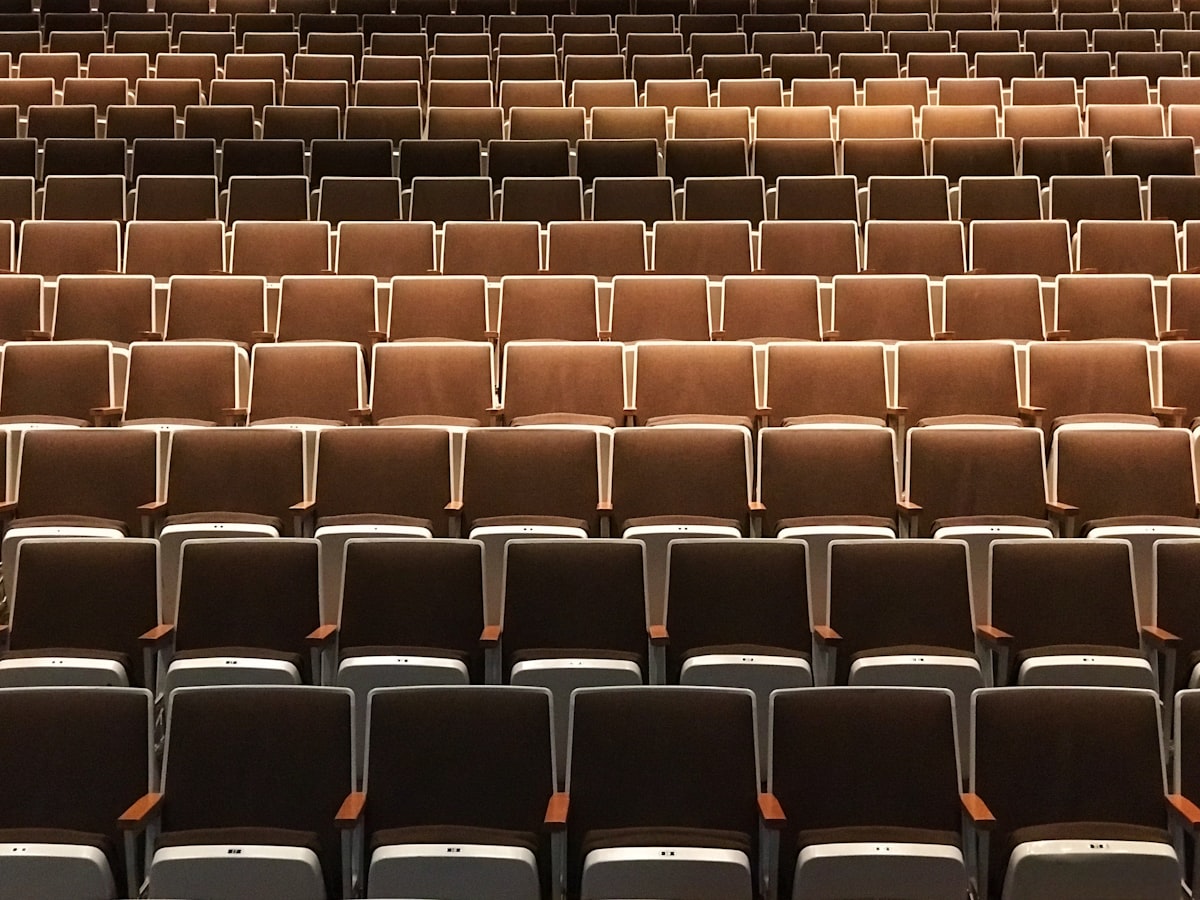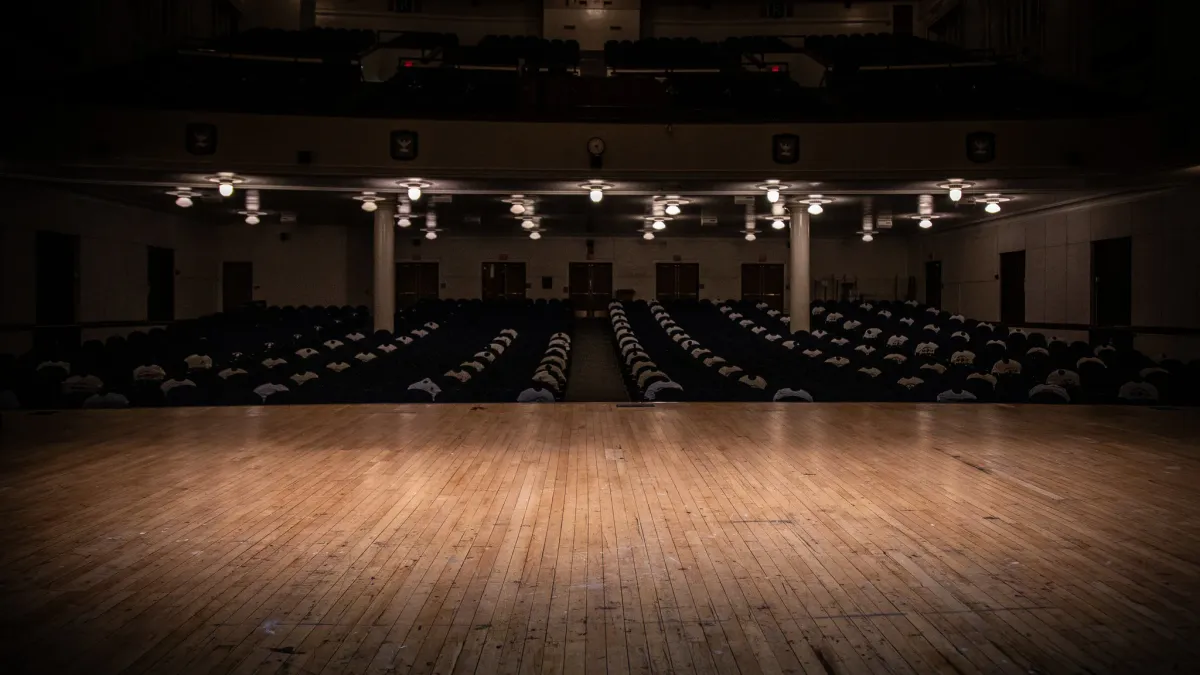"Now I Understand"
Some ruminations on the state of things.

I was cleaning out my photo roll yesterday and rediscovered something I meant to share with you a while back. It’s a 2013 article in the Chicago Tribune about iO’s free-labor policy that I came across while doing research for my Longreads essay. Specifically, it’s a brief mention of Matt Besser in that article:
What iO offers is an entry point and a training ground. I asked Halpern about the UCB pay debate, because frankly it looks exploitative — not to mention demoralizing — to not pay people for their time and talent. "When Besser was here I used to fight with him about this: 'You should pay people, you should give free drinks.' They think you're rich when you own a theater. And when I spoke to him about this recently he was like, 'Now I understand.' It's funny, now he gets it."
How about that? When he was a worker, he thought comedy theaters should pay talent. Once he became an owner, he understood that they shouldn’t. Could it be any clearer?
Of course, we now have the context to recognize that Besser wasn’t quite being honest with himself or Halpern. Presumably this conversation took place in 2013 or thereabouts; it was in 2010 that UCB gave Besser’s co-owner, Ian Roberts, a $200,000 home loan. Maybe the owners weren’t rich, but the theater had plenty of money. (Also, Amy Poehler was rich.)

It has now been the better part of two years since UCB’s founders sold the theater to Mike McAvoy, formerly CEO and owner of The Onion, and Jimmy Miller, co-founder of talent management firm Mosaic, who bought UCB with backing from the LA Dodgers’ venture capital arm. They resumed operations in Los Angeles in late 2022; they are expected to open their new location in New York City sometime next year. Not only does the theater now pay talent, it recently announced a partnership with Abso Lutely—Tim Heidecker and Eric Wareheim’s production company—which was acquired by UCB’s new owners. This partnership will ostensibly build a development pipeline from UCB to Abso, which will also build production capability’s at UCB’s theaters. “This will allow UCB to stream shows straight to comedy lovers around the world,” per Variety, “in addition to offering a wide array of digital engagement opportunities to talent and audiences alike.”
A friend recently asked what I make of this partnership. Truthfully (and perhaps uncharacteristically), I’ve felt inclined to reserve judgment. I like Abso Lutely, I think they do good work, I have no reason to doubt the good faith of UCB’s new ownership beyond my general skepticism of capitalists, and I wonder if this is a genuine effort to build the robust talent pipeline that has long been UCB’s implicit promise. On the other hand, I’m not sure UCB’s past development deals (with NBC’s Universal Cable Productions, in 2015, and with NBC’s Seeso streaming service, in 2016) did much to help the theater’s workers. In fact, the Seeso deal allegedly made things worse for them: in 2018, Besser claimed that it “masked two years of deficits” preceding a round of mass layoffs.
To get a little more skeptical, the UCB-Abso partnership looks a lot like vertical integration. Then again, so does the UCB acquisition itself. The owner of a massive talent management firm bought one of Hollywood’s most important talent incubators, then the production company behind some of the most distinctive comedy of the last two decades. (Yes, Mosaic is also a production company itself, which is a whole other conversation about management companies.) Perhaps this will financially benefit some people in the short term, but I have trouble believing the long-term plan is anything but a few people controlling vast swaths of cultural production. How has that worked out in the past?
I could leave that as a rhetorical question, but I think it’s worth sitting for a minute and pondering the moment we’re in. As I mentioned in my interview with Joe Pera a few months ago, when I started writing about this business in 2015, Netflix was shelling out for standup specials (and 15-minute sets) from little-known comics, assuming for itself the role of turning them into stars. There were a billion digital comedy platforms like Seeso and Go90 and CollegeHumor and Funny or Die and Seriously.TV. Comedy Central had a robust slate of digital series from up-and-comers in addition to its original half-hour and standup offerings. I think it’s reasonable to suggest that for a few years, Netflix edged out its competitors to become the dominant player in standup; now it’s largely pumped the brakes on specials from comics who aren’t already famous. Meanwhile, the digital landscape is barren, Comedy Central basically doesn’t exist anymore (seriously, what’s with that?), and nationally recognized comics are self-producing their own projects on YouTube. Oh, also the pandemic revealed that existing business models for improv/sketch theaters and standup comedy clubs are good for putting one or two months of rent in the bank, at most.
In a sense, we are now in period of decentralization. The traditional gatekeepers (venue owners, TV and film executives) have less power, but they do not have no power, and what power they’ve lost has not exactly turned over to the workers. It has turned over to some workers, yes: in the digital era, artists can build large audiences and (sometimes, but not always) large incomes independently, without any need for something like UCB to connect them with something like Abso Lutely. If those artists wish to work in TV or film, however, they must enter Hollywood’s legacy power structure and submit to its norms. This is probably not so difficult a calculation for viral stars (like Ziwe or Rachel Sennott) and beloved alt comics (like Sarah Sherman) whose early success did not necessarily translate to revenue. For artists with audiences who pay them directly—standup comedians and podcasters, namely—it is much easier to remain independent if they wish. They will be reliant to an extent on the good will of venue operators, sure, but it helps that venue operators are amoral creatures who rent their stages to anyone who can fill them.
What has this decentralization meant for comedy workers as a class? What has the rise of independent artists given to the art form and the industry? To my eye, not very much. It has not made anyone safer from sexual predators. It has not increased wages. It has not given brilliant alt comedians any more freedom to turn down jobs writing for the likes of Jimmy Fallon and James Corden. It has not inspired venue owners to use their powers more ethically. It has not led Hollywood’s traditional gatekeepers to operate with greater transparency or treat their workers more fairly; only a months-long strike by thousands of unionized writers and actors accomplished that. It has not empowered any sort of soul-searching about comedy’s embrace of bigots and reactionaries; if anything, it has empowered the bigots and reactionaries themselves. It certainly hasn’t improved standup’s diversity problems. The most popular and highest-earning comics are still, by and large, white men.

I submit that power has not been redistributed: it has merely been reassigned. Club owners and festival bookers and Hollywood studios have less, a handful of mega-rich comics have more, and the majority of comedy workers still have none. In our conversation earlier this month, Kliph Nesteroff suggested that there is scant inter-comedy critique of figures like Dave Chappelle and Joe Rogan because many comedians see them as meal tickets: they recognize that touring with Chappelle or appearing on Rogan’s podcast will benefit their own careers. I think this is a crucial point, one that gets to the heart of wealth inequality in culture industries. If you’re working paycheck-to-paycheck in a field of freelancers where some are orders of magnitude richer than you—and others might someday become orders of magnitude richer than you—then pretty much everyone around you is your boss, or your potential future boss. Once you get rich, there’s always someone who can get you richer. In this environment, even undeniably successful artists lose any incentive to rock the boat. Consider Stavros Halkias on the Joe Rogan Experience this week:
yea Joe they're pissing off their voters to get votes from people who cant vote https://t.co/PAYK1y3BuL pic.twitter.com/HZPAHb9Gxu
— Matt Lech (@MattLech) December 15, 2023
I understand Halkias to be the good, progressive-minded member of a certain edgelord podcast trio. How tragic, then, that even he must pay tribute to an anti-trans Covid denialist misinformation peddler, offering only light pushback to Rogan’s xenophobic ravings. What an indictment of the art form, that even comics known for their impropriety cannot call a shithead a shithead to his face. Or that they just don’t want to.
The problem is that success in Hollywood is so random, so life-changing, and so tenuous that its very promise transforms pre-UCB Matt Bessers into post-UCB Matt Bessers. You cannot fix a system’s problems without a critical mass of people who want them fixed, and you will never reach that critical mass within a system designed to suppress any will towards transformation. What this means is that you cannot change comedy for the better simply by developing a better pipeline to success in comedy. You have to change the definition of success itself.

I still believe, as I wrote last year, that the only real path forward lies in disentangling comedy work from Hollywood, making it possible to live a middle-class life creating art at the community level. (That’s not to say mass media comedy careers no longer exist in this world. The dream is that one will no longer need them to make comedy livably, and will therefore be free from their perverse incentives.) That 2022 piece outlines all the reasons this is unlikely to happen anytime soon, because it functionally requires society-level transformations. To bring it back to UCB, though, the answer to my friend’s question is this: what the partnership with Abso Lutely tells me is that UCB’s new owners do not believe improv and sketch are essential art forms in their own right, rather than pathways to more profitable work in television and film. This has been the fatal flaw behind the failures of every major American comedy theater, from the wage theft to the union busting to the racism. If you don’t believe in live comedy, you won’t see it as your responsibility to build a world where live comedy is a viable career.
It seems to me that the pandemic erased any doubt as to whether the for-profit comedy theater-slash-school model is viable for artists. It’s not. What I’d like to see is the industry move towards an actual redistribution of power, which I suspect means turning over theaters to their workers. Again, I know that’s unlikely to happen anytime soon. But there’s no time like the present to get the ball rolling.

